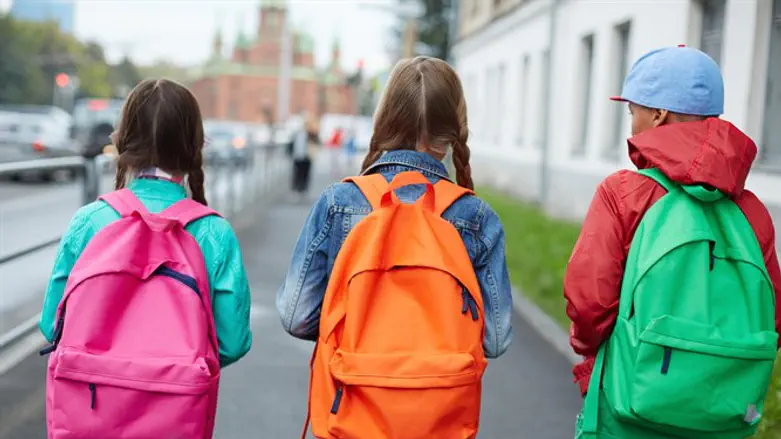
Prime Minister Binyamin Netanyahu today held a multi-participant discussion regarding various alternatives for gradually returning the education system to routine.
Netanyahu instructed the Education Ministry to prepare for a gradual reopening of education in preschools and day care as of Sunday, May 3, provided the morbidity data for Sunday does not indicate a worsening trend.
On Friday a situation assessment will take place, within which a gradual opening of the education system is expected to be finalized in accordance with the latest morbidity data and in accordance with the Gartner Report on infections among children, expected to be presented to the Prime Minister and ministers in coming days.
Preschools and kindergartens:
Learning will take place in two groups, with each group comprising 15 children. A group arriving for the school day will be split into two groups within the preschool, so that each group will average up to 8 children. Each group will physically study in the preschool for half a week, with the other half studying in remote study format.
Grades 1-3:
On average, each group will be about 15 students. Each group will study in a separate classroom (the free 4th-6th grade classrooms will be used). Physical learning will take place Sunday through Thursday. Breaks will be at alternate times to avoid meetings in the yard and exposure to infection.
Grades 4 and up:
The rest of the students, in 4th-10th grades, will continue remote study.
The Prime Minister tasked the Interior Minister and National Security Council to summarize the format with regard to localities defined as "red" with high rates of morbidity and infection.
In addition, to increase the number of study groups, the feasibility of recruiting students for teaching and integrating them into the educational teams will be examined.
Restoring the education system to action will rest on a number of principles: Teaching in small, regular classrooms, regular teaching staff (not members of at-risk populations), continuing remote study (for children unable to attend school) and strict adherence to rules of distance and hygiene. Children in at-risk populations or whose family members (who live with them) are included in this population will not be integrated.
Rabbi Rafi Peretz said "the education system is preparing for gradual and cautious return. We've done serious and significant work to adapt the system to Health Ministry guidelines. The fact that the ministers and all the professionals approve it speaks for itself. We'll be on hand for educational institutions to develop cautiously to prevent infection recurrence."
Education Ministry Director Shmuel Abuav emphasized: "We're ready to open educational institutions, and we're pleased that the detailed outline we submitted to the government has been approved. Education teams, who have done a great job since the coronavirus crisis broke out, are excited to meet their students face to face. We're preparing for the new educational-health reality, accompanied by educational and administrative staff."

